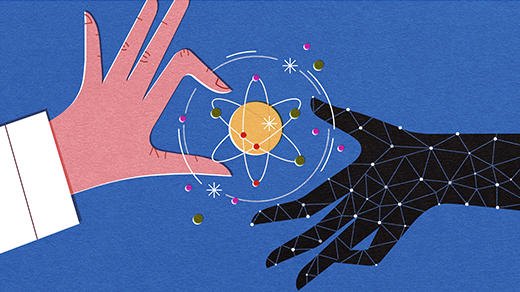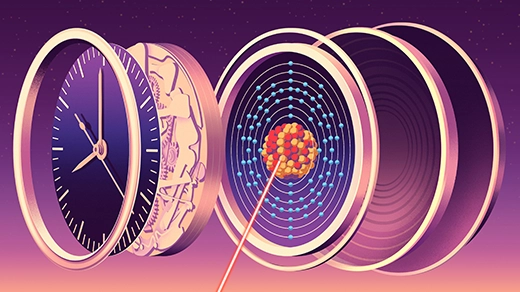What's up in
Experimental physics
Latest Articles
First Map Made of a Solid’s Secret Quantum Geometry
Physicists recently mapped the hidden shape that underlies the quantum behaviors of a crystal, using a new method that’s expected to become ubiquitous.
Finding Beauty and Truth in Mundane Occurrences
The physicist Sidney Nagel delights in solving mysteries of the universe that are hiding in plain sight.
What Happens When AI Starts To Ask the Questions?
Technology has forever served as science’s toolbox. But now that AI is being used to develop questions and methods as well, some scientists wonder what their role is going to become.
Exotic New Superconductors Delight and Confound
Three new species of superconductivity were spotted this year, illustrating the myriad ways electrons can join together to form a frictionless quantum soup.
Physicists Spot Quantum Tornadoes Twirling in a ‘Supersolid’
New observations of microscopic vortices confirm the existence of a paradoxical phase of matter that may also arise inside neutron stars.
It Might Be Possible to Detect Gravitons After All
A new experimental proposal suggests detecting a particle of gravity is far easier than anyone imagined. Now physicists are debating what it would really prove.
The First Nuclear Clock Will Test if Fundamental Constants Change
An ultra-precise measurement of a transition in the hearts of thorium atoms gives physicists a tool to probe the forces that bind the universe.
‘Metaphysical Experiments’ Probe Our Hidden Assumptions About Reality
Experiments that test physics and philosophy "as a single whole" may be our only route to surefire knowledge about the universe.
What Could Explain the Gallium Anomaly?
Physicists have ruled out a mundane explanation for the strange findings of an old Soviet experiment, leaving open the possibility that the results point to a new fundamental particle.








